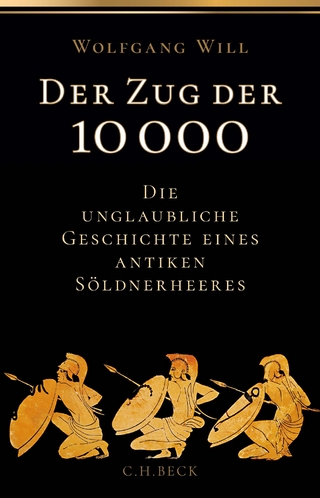
Dionysus after Nietzsche
Cambridge University Press (Verlag)
978-1-108-48256-1 (ISBN)
Dionysus after Nietzsche examines the way that The Birth of Tragedy (1872) by Friedrich Nietzsche irrevocably influenced twentieth-century literature and thought. Adam Lecznar argues that Nietzsche's Dionysus became a symbol of the irrational forces of culture that cannot be contained, and explores the presence of Nietzsche's Greeks in the diverse writings of Jane Harrison, D. H. Lawrence, Martin Heidegger, Richard Schechner and Wole Soyinka (amongst others). From Jane Harrison's controversial ideas about Greek religion in an anthropological modernity, to Wole Soyinka's reimagining of a postcolonial genre of tragedy, each of the writers under discussion used the Nietzschean vision of Greece to develop subversive discourses of temporality, identity, history and classicism. In this way, they all took up Nietzsche's call to disrupt pre-existing discourses of classical meaning and create new modes of thinking about the Classics that speak to the immediate concerns of the present.
Adam Lecznar is a research fellow in the Department of Greek and Latin at University College London. His work is concerned with understanding the way that modern experience, knowledge and ideas have been formed in a lively dialogue with the texts and authors of ancient Greece and Rome. Alongside writing various essays on continental media theory, Nietzsche, James Joyce and Alejo Carpentier, Lecznar has also recently co-edited a path-breaking collection on Classicisms in the Black Atlantic which examines the way that the ancient Greek and Roman pasts have become interconnected with modern discourses of race and identity.
Introduction. Dionysus after Nietzsche; 1. Corybants, satyrs and bulls: Jane Harrison; 2. A great kick at misery: D. H. Lawrence; 3. In search of an absent god: Martin Heidegger; 4. What Oedipus knew: Richard Schechner; 5. Dionysus in Yorubaland: Wole Soyinka; Conclusion. Dionysus today.
| Erscheinungsdatum | 16.04.2020 |
|---|---|
| Reihe/Serie | Classics after Antiquity |
| Zusatzinfo | Worked examples or Exercises |
| Verlagsort | Cambridge |
| Sprache | englisch |
| Maße | 158 x 235 mm |
| Gewicht | 480 g |
| Themenwelt | Geschichte ► Allgemeine Geschichte ► Altertum / Antike |
| Geisteswissenschaften ► Philosophie ► Philosophie der Neuzeit | |
| Geisteswissenschaften ► Sprach- / Literaturwissenschaft ► Anglistik / Amerikanistik | |
| Geisteswissenschaften ► Sprach- / Literaturwissenschaft ► Literaturwissenschaft | |
| Sozialwissenschaften | |
| ISBN-10 | 1-108-48256-2 / 1108482562 |
| ISBN-13 | 978-1-108-48256-1 / 9781108482561 |
| Zustand | Neuware |
| Haben Sie eine Frage zum Produkt? |
aus dem Bereich


